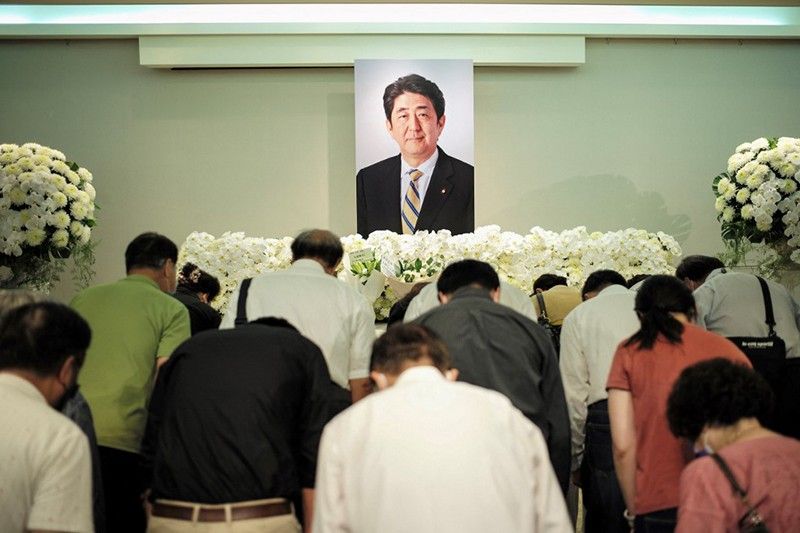Beyond Shinzo Abe’s complicated political legacy

Former Prime Minister Shinzo Abe is perhaps the most complex political figure in Japan’s modern history. His untimely death and its profound impact on the country’s political landscape leaves a political legacy felt by the international community.
Born into a prominent political family, Abe first entered politics as a legislator in 1993, representing the fourth district of Yamaguchi. He then held a number of cabinet positions before being appointed as the secretary general of the Liberal Democratic Party (LDP). In 2006, Abe succeeded Junichiro Koizumi to become the 90th Prime Minister of Japan, making him the youngest individual to hold office since World War II.
In his first term as prime minister, Abe remained committed to restoring and elevating the role of Japan in international affairs. To broaden the country’s diplomatic reach, he introduced the Quadrilateral Security Dialogue and actively promoted the Arc of Freedom and Prosperity concept.
Abe also publicly expressed his intentions to revise the country’s post-war Constitution to allow the Japan Self-Defense Forces (JSDF) to project power abroad. However, his government soon found itself at the center of political turmoil. When the LDP eventually lost control of the legislature in 2007, Abe abruptly announced his resignation, casting uncertainty on the future of his political career.
The fall of the Democratic Party in Japan paved the way for Abe's historic return to power in 2012. In response to growing public dissatisfaction and the emergence of threats in the region, he carried out and accelerated the passage of new security reforms, including the reinterpretation of Article 9 of the Constitution known as the “no war” clause which took effect after World War II renouncing the use of military force to settle disputes and the establishment of Japan's first National Security Council.
Abe also advocated for the enactment of the "Legislation for Peace and Security" and the "Permanent International Peace Support Law," which would provide a legal foundation for the reinterpretation of the Constitution and allow the seamless deployment of JSDF logistical support assets abroad.
In 2016, he also introduced the concept of a Free and Open Indo-Pacific, which is now adopted by leaders around the world. These significant developments signaled a shift in Japan's postwar security policy.
Abe’s political legacy like all great political figures are always wrought with intricacies. Largely shaped by the conservative policies and agenda of the LDP, Abe’s influence continued to touch public opinion. While his economic and security reforms resonate with his supporters, his frequent visits to the controversial Yasukuni Shrine and his stance on Japan’s wartime atrocities have been widely criticized at home and abroad.
Divergent public opinion is further reflected in recent surveys about his upcoming state funeral. In a nationwide poll conducted by Mainichi Shimbun, 53% of the respondents opposed the state funeral, while 30% said they were in favor. On the other hand, a poll conducted by Asahi Shimbun between September 10 and 22 found that 58% of those aged 18 to 29 approved of the memorial service, with the percentage dropping to 26% among those aged 70 or older.
On Sept. 27, 2022, the government will hold the state funeral for Abe at Nippon Budokan in Tokyo. More than 6,000 guests are expected to attend, including current and former legislators, local government officials, and foreign dignitaries such as US Vice President Kamala Harris, Australian Prime Minister Anthony Albanese, Indian Prime Minister Narendra Modi, and French President Emmanuel Macron.
Last month, the government approved an initial budget of 250 million yen ($1.8 million) for the state funeral, which was later criticized because it did not disclose the costs of security and other expenses. Chief Cabinet Secretary Hirokazu Matsuno recently announced an increase in the budget for the state funeral with the government anticipated to contribute an estimated 1.66 billion yen ($11.8 million), which takes into account costs for security and hosting VIPs from overseas.
Members of the opposition parties, including Kenta Izumi, the current leader of the Constitutional Democratic Party of Japan, criticized Prime Minister Fumio Kishida for his failure to address mounting questions over the estimated cost of the state funeral as well as its legal basis and necessity. Various groups have also staged protests in front of the Prime Minister’s Office in an attempt to pressure the government to cancel Abe’s state funeral.
Prime Minister Fumio Kishida addressed these concerns in a recent parliamentary debate. He stressed that it is appropriate to hold a state funeral for Abe, given his achievements as Japan’s longest-serving prime minister and the desire of foreign dignitaries to personally express their condolences.
He also reiterated that the state funeral would allow the public to honor Abe and express their appreciation for his contributions. Kishida added that the funeral is intended to demonstrate the determination of Japan to defend democracy without giving in to violence.
Despite the controversies surrounding Abe’s state funeral, the Japanese public must also acknowledge his contributions to revitalizing Japan’s economy and his role in advancing a rules-based order in the region. He is Japan’s longest-serving prime minister, after all, and the state funeral will rightly serve to honor his life and leadership. Abe’s achievements as a leader allowed Japan to be a prominent and prosperous nation that espouses peace and shared democratic values.
Jikko Alfonso Puzon is a research manager at think tank Stratbase ADR Institute.
- Latest




























